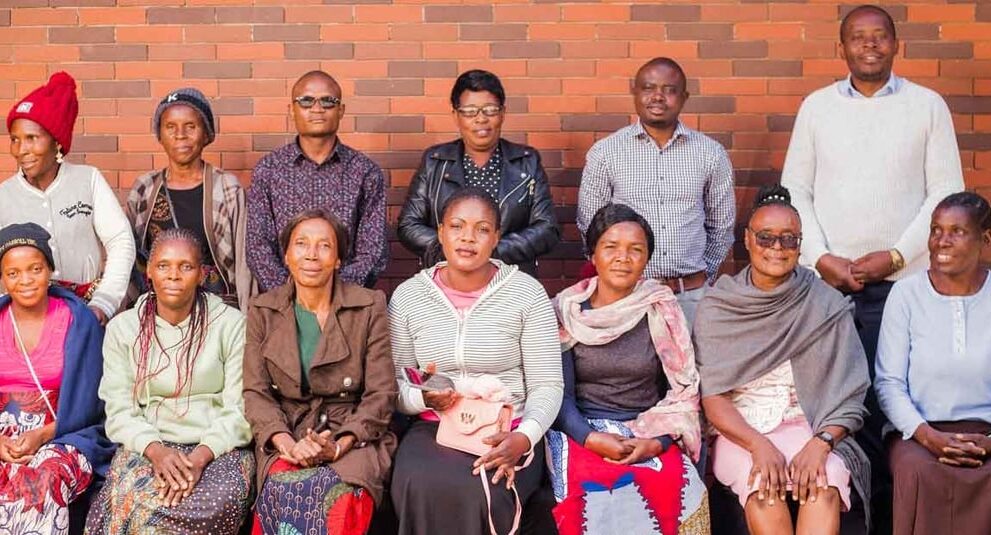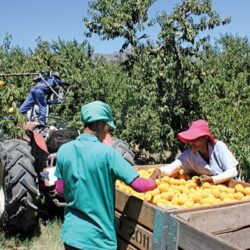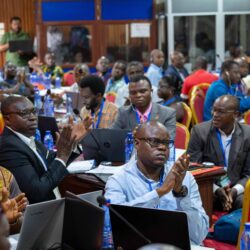Women farmers living in one of Zambia’s critically important forest regions – the Kafue Sub-Basin – recently completed a training programme, supported by the African Development Bank and the Climate Investment Funds (CIF), on how to earn income from forest-friendly activities.
From June 10-14, the women attended courses in Lusaka devoted to activities, such as beekeeping and mushroom production, and business management. New income streams are key in poor rural areas where saving forests is critical to meeting the challenge of climate change.
This initiative took place under the auspices of the Strengthening Climate Resilience in the Kafue Sub-Basin (SCRiKA) project. It aimed to strengthen the development of non-timber forest products (NTFPs) and equip women with essential skills for sustainable forest resource utilisation and effective business management.
Beekeeping sessions covered essential aspects like equipment, apiary site selection, bee management, and honey processing. Mushroom production training focused on oyster mushroom farming.
Participants also learned business management, financial literacy, market dynamics, value chain analyses, networking, collaboration, governance, and leadership skills. Additionally, they were taught basic climate risk analysis for various livelihood strategies.
The SCRiKA project, funded by the CIF through the African Development Bank, seeks to enhance rural communities’ adaptive capacities, focusing on gender-responsive actions due to women’s increased vulnerability.
Hawa Msham, Principal Country Program Officer of the African Development Bank Zambia office, emphasised, “This activity builds on SCRiKA’s efforts, emphasising female-led climate adaptation initiatives through grants and business management training. It aims to economically empower women and ensure sustained project benefits. Given that Zambia’s Kafue sub-Basin faces severe climate change impacts such as droughts and floods, which significantly affect agriculture, this training is crucial.”
Zambia faces serious humanitarian challenges due to frequent droughts, floods and heat waves driven by climate change. These disaster risks affect the country’s poorest communities, especially in rural areas, which rely on rainfall for agriculture. Erratic weather patterns, compounded by the El Niño effect, are driving the overall increasing severity of food insecurity.
The training also provided comprehensive insights into sustainable livelihoods with a focus on NTFPs. Participants were equipped with skills in resilient livelihood strategies, enabling them to implement projects that build resilience against climate change. According to Sylvester Siame of the Forestry Department, “the training on NTFPs is crucial for enhancing resilience and diversified livelihoods among women. Given that women are among the most vulnerable groups to climate change, this training is vital in providing alternative livelihoods and reducing overdependence on natural resources for household income.”
Participants expressed their enthusiasm and appreciation for the training.
An enthusiastic Sophia Moonga of the Sekaseka Women Group in Chibombo declared: “Beekeeping is a sustainable practice that can improve our household income. This is my first-ever training on beekeeping.”
Grace Ngoma Mwanchingwala from the Moringa Women Group in Mazabuka added: “Now we know that honey is produced by bees from flowers. We will plant more trees and conserve our forests to increase honey production and our income.” Linda Lupoleka of the Chilaleta Women Group in Mumbwa shared: “We have learned how to access good markets for the products. I have learned a lot about budgeting and the importance of savings.”
The training enhanced participants’ knowledge of sustainable livelihoods, increased awareness of unsustainable practices, promoted gender equality in livelihoods, and improved their ability to identify and analyse climate risks. It also provided a better understanding of market dynamics and value chain analyses, knowledge of legal and regulatory frameworks governing forest-based activities, skills for building networks and fostering collaborations, enhanced financial literacy and entrepreneurial skills, improved understanding of governance principles and leadership skills, and knowledge of asset management. “The women were engaging and able to grasp concepts easily. When implemented, the lessons will help communities adapt to climate change, build resilience and have enduring impact for generations to come,” concluded Felix Kanungwe Kalaba, a trainer.
The training highlighted the urgent need to adopt climate-smart practices and addressed gender dynamics for inclusive participation. Tailoring the content to the Kafue sub-basin effectively tackled regional challenges. Future programmes should include more practical sessions, such as field visits, to reinforce theoretical knowledge. Continuous capacity-building and establishing monitoring and evaluation mechanisms will be crucial for assessing impact and ensuring the sustainability of the enterprises.




